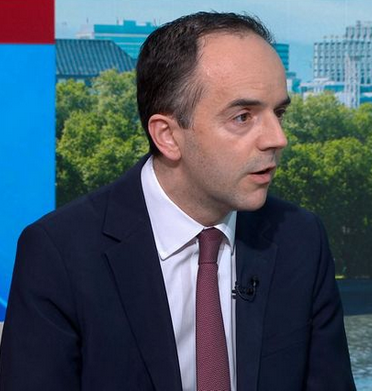The Stay Well This Winter campaign (SWTW) launches today in the West Midlands region and around the country the biggest ever flu vaccination programme in England. This year more than 447,500 children aged 2-7 years in the West Midlands will be offered protection. At risk adults, including those with long-term health conditions, pregnant women and those over 65 will also be offered flu vaccination. An extension of the programme to children in school Year 3 this year means around a further 75,000 can be vaccinated. Across England, more than 4 million children will be offered protection against flu – around 600,000 more than last year.
As well as offering protection to these children aged 2 to 7 years, it will help reduce the spread of this infection to the most vulnerable in the community, particularly younger children, the elderly and those with long-term conditions.
Building on the success of last year, children aged 2, 3 and 4 can get the vaccination from their GP. Parents of children in school Years 1, 2 and 3 are asked to give permission for their child to receive the free nasal spray vaccination at school.
A survey showed that nearly 4 out of 10 (37%) parents of eligible children are unaware of the nasal spray. A TV, radio and online advertising campaign starts this week targeting parents and adults in at risk groups who are also eligible for free vaccination.
Children are most likely to spread flu to others, so targeting them helps protect the wider community too. It is estimated that several million people get flu each winter, leading to more than 2,000 NHS intensive care admissions across the UK last year. Reducing transmission by children can potentially help cut the number of GP appointments and unplanned admissions for children and adults, reducing winter pressures on the NHS. The programme will be extended gradually to older age groups in primary school in future years.
Flu can be particularly dangerous for those with long-term health conditions, like respiratory disease, such as chronic obstructive pulmonary disease, bronchitis or emphysema, diabetes; heart, kidney or liver disease; and chronic neurological diseases, like multiple sclerosis or cerebral palsy. People with these conditions are eligible for vaccination because if they get flu, it is more likely to develop into a serious illness, which could result in admission to hospital. Last year, 46.4% of people with a long term health condition in the West Midlands region were vaccinated against flu.
On average someone with a long-term condition is 11 times more likely to die if they get flu than those not in at risk groups. The risk of death varies by condition, with patients with chronic liver disease 48 times more likely to die on average than those without an underlying chronic health condition. There are nearly 6.8 million people with a long-term condition in England under 65 years of age.
The campaign is also encouraging pregnant women to get vaccinated against flu. Pregnancy naturally weakens the body’s immune system, and so flu can cause serious complications for mother and her newborn baby. The free vaccine is offered to other groups at particular risk of infection and complications, or liable to spread it to those at risk: anyone aged 65 and over; residents of long-stay care homes; and carers. Those eligible should contact their GP, pharmacist or midwife, as appropriate, for more information.
Last year 12.4 million people were vaccinated overall in England.
The NHS and social care workforce is also being targeted to help protect them, and reduce the risk of frontline workers spreading infection to patients, particularly those in vulnerable groups. The NHS is running its ‘Flu Fighter’ campaign throughout the flu season providing advice, guidance and promotional materials to support local NHS trusts to get staff vaccinated.
















